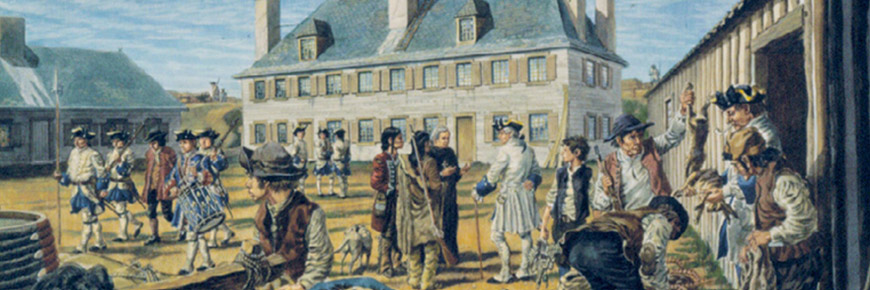
Life inside the Fort during the French regime
Fort Beauséjour – Fort Cumberland National Historic Site
Life inside the fort at Beauséjour resembled that of other garrisons in North America. During the French regime, the garrison included about 150 regular soldiers from the ''Compagnies franches de la Marine'' originating from Québec and Louisbourg. The regulars were sometimes joined by militiamen from New France. Two hundred French soldiers defended the fort in 1755.
The garrison of 150 men was divided into three companies of about 50 soldiers, each of which was led by a captain. The men were lodged in relatively comfortable quarters for the time but often suffered from mosquitoes in the summer and from the snow and cold in the winter.
Soldiers were called upon to work on the fortifications, to dig and maintain the ditch, to pick up rubbish, and to cut and transport firewood for the barracks. To escape from these duties, the men often requested a leave and in some cases even deserted, despite the severe punishment.
Military pay
Each French soldier received a monthly pay of 30 sols while the captain of a company received 90 livres. In addition to food, clothing and firewood, the soldiers were also entitled to a number of other essential items including soap, combs, needles and razors which they obtained at the King's Storehouse.
Both soldiers and officers received a daily ration of wine or beer and also frequented the taverns outside the fort. One of the more popular ones belonged to an Acadian by the name of Joseph Caissie.
Next part: The Acadians and the FortRelated links
- Long before the Fort: Acadian settlement
- First warfare
- Zone of contention, place of growth
- The construction of a fort at Beauséjour
- The Acadians and the fort
- Tensions of the 1750s
- The siege of 1755
- The deportation of the Acadians
- The start of the British occupation
- Settlers from Yorkshire
- The 1776 siege of Fort Cumberland
- Changes to the fort after the second siege
- Creation of the national historic site
- Archeological digs
- Date modified :